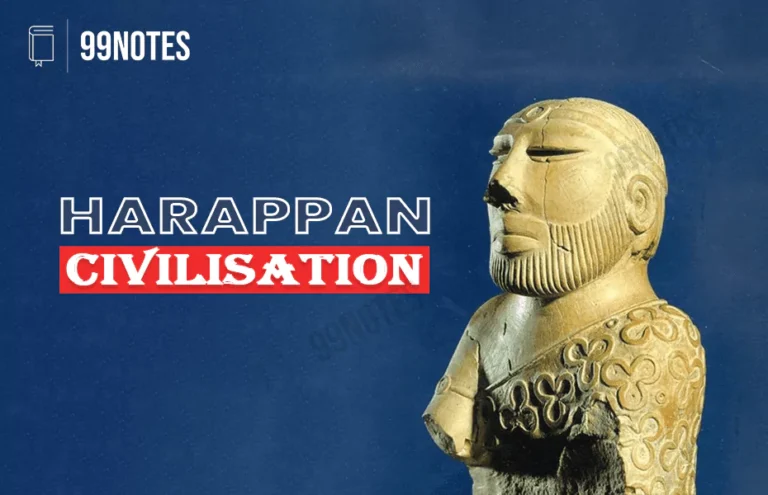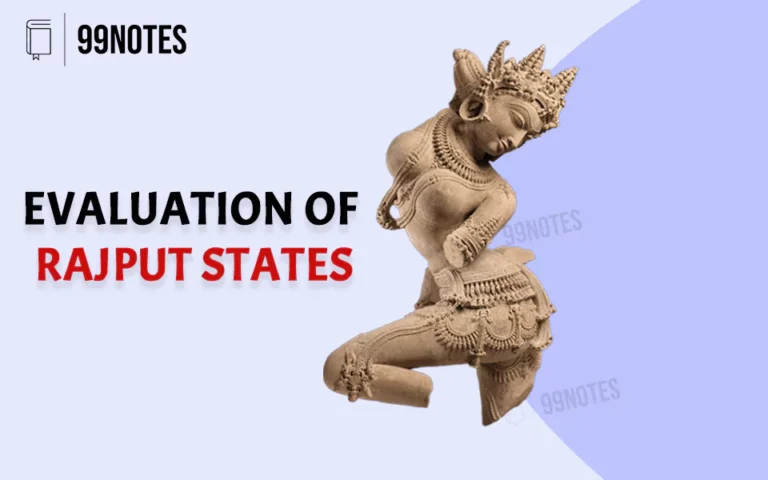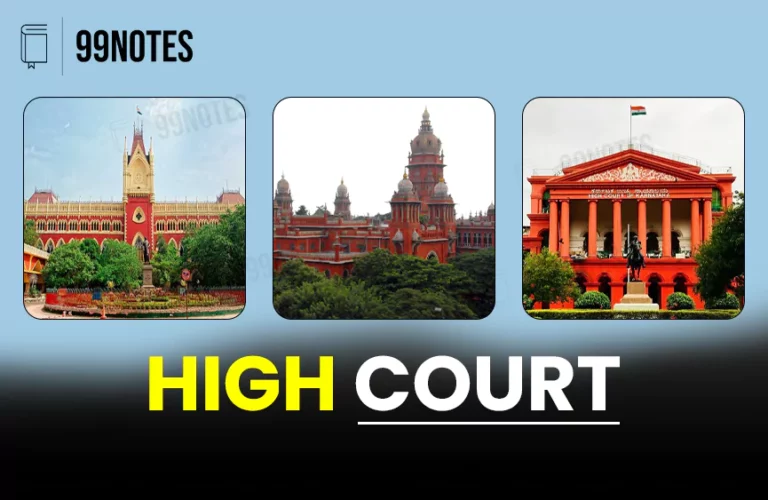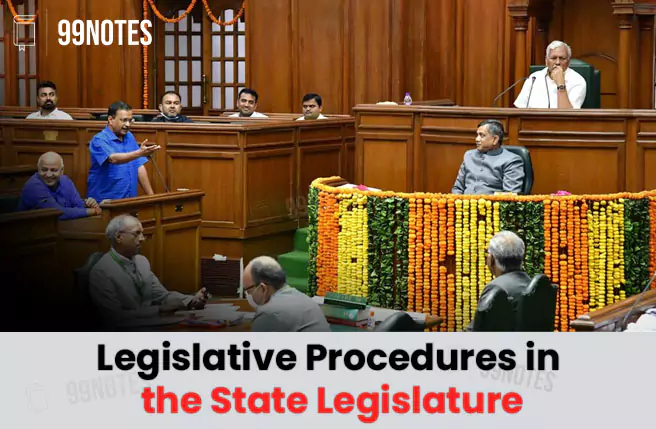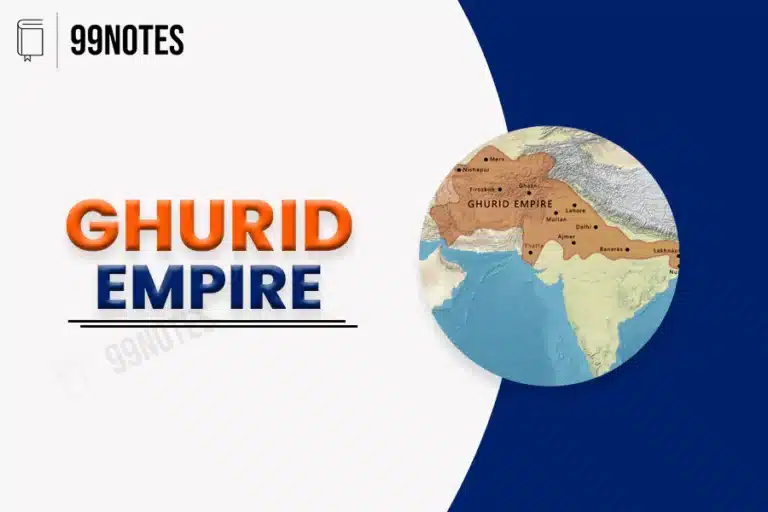Early Political Activities: 1858-1905 [Complete Notes for UPSC]
Early Political Activities: 1858-1905
The revolt of 1857 was the first major large-scale revolt against the British. However, it failed to overthrow British imperialism. The failure of the revolt in 1857 demonstrated that revolutions based on old outlooks and social forces were ineffective against modern imperialism. In this aspect, the need arises for the political consciousness with the new movement:
- It was necessary to have new ideologies, new social forces, and a modern political movement that was based on the awareness of colonialism and was capable of mobilising the masses for nationwide political activity.
- Modern nationalist intellectuals initiated movements to spread awareness of colonialism during the second half of the 19th century.
- The new movement had a far narrower social base but was motivated by new political ideas and new social, economic, and political goals.
- It also represented new leading classes, new forces and forms of struggle and new techniques of political organisation.
Factors Responsible for The Growth of Modern Nationalism:
Nationalism refers to the collective identity based on race, ethnicity, language, etc. Lack of nationalism was a major factor in the failure of the revolt of 1857. However, in the second half of the 19th century, various factors were responsible for the growth of modern nationalism
1. Political, Economic and Administrative Unification of the country (link 10)
- Geographical unification and modern means of communication brought people, especially the leaders from different parts of the country, together.
- Due to the economic unification, the economic interests of the people of different regions got linked together.
- The introduction of a uniform system of administration in India also brought a feeling of unity among Indians.
2. Western Thought and Education
British rule in India made closer relations with the West possible. This made the flow of modern ideas possible.
- The introduction of Western education in India led to the assimilation of modern Western ideas.
- The liberal and radical thoughts of European scholars like Milton, John Stuart Mill, Rosseau, Spencer, and Voltaire helped Indians imbibe modern rational, secular, democratic, and nationalist ideas.
3. Development of Indian Press and literature (Link- British policy on Indian Press (10)):
The press has been a major instrument in spreading modern nationalist ideas. It acted as a conduit to link different regions and people to develop a common identity. It also helped in the following ways:
- The press played an important role in criticising and censuring government policies.
- It helped spread modern ideas of self-government, civil rights, democracy, etc.
- The “Anand Math” of Bankim Chandra Chatterjee has rightly been regarded as the “Bible” of modern Bengali patriotism.
4. Socio-Religious Reform Movements
The socio-religious movements tried to eliminate the social evils that divided society. These movements also contributed to getting rid of the inferiority complex among the educated middle class regarding their culture.
5. Rediscovery of India’s Past
Archaelogical survey started in India that discovered the past of India. It highlighted the past big empires of Ashoka, etc. that helped in the development of nationalism. It can be seen in the following points:
- The works of European scholars and orientalists such as Max Muller and Monier Williams and by Indian scholars such as RG Bhandarkar and RL Mitra emphasised India’s rich heritage and past glory.
- The Indo-Aryan theory, which indicated that the Indians and Europeans belonged to the same ethnic groups, gave a psychological boost to educated Indians.
6. Impact of Contemporary Movements Around the World
- The national liberation movements of Italy, Greece, and Ireland, particularly, deeply influenced the nationalists.
- During that period, most of the countries of Latin America slipped out of the hands of Iberian powers (Spain and Portugal) that ruled the region.
7. Understanding of Indian And Colonial Interests
- With the repression of the British, it was realised that the British economic policies were not in the interests of Indians.
- People understood that colonial rule was the major cause of extreme poverty, frequent famines, and the destruction of traditional industries.
- During the 1870s and the 1880s, a comprehensive nationalist critique of British rule emerged in India. Dadabhai Naoroji gave the concept of the drain of wealth.
8. Reactionary Policies and Racial Arrogance
Following are the open, reactionary character of Lytton’s tenure from 1876 to 1880 accelerated the growth of Indian nationalism:
- The Arms Act of 1878 had exclusionary and discriminatory provisions.
- The Vernacular Press Act of 1878 sought to repress the increasing Indian criticism of British rule.
- Reduction of maximum age limit to appear in the ICS exam from 21 years to 19 years.
- The holding of a lavish Delhi Durbar in 1877, at a time when lakhs of Indians were succumbing to famine and the waging of an expensive war against Afghanistan at the expense of the Indian economy.
- The elimination of import duties on textile imports from Britain threatened the existence of the newly emerging Indian textile industry.
![Early Political Activities: 1858-1905 [Complete Notes For Upsc] | Updated February 21, 2026 Delhi Durbar 1877](https://99notes.in/wp-content/uploads/2024/01/8.-Reactionary-Policies-and-Racial-Arrogance-99notes-upsc.jpg)
- Delhi Durbar 1877 (https://blogs.loc.gov/international-collections/2017/11/the-delhi-durbar-and-the-proclamation-of-queen-victoria/)
- Ilbert Bill Controversy
Lord Rippon tried to pass a law to enable the Indian district magistrates and session judges to try the Europeans in criminal cases. However, the Europeans in India organised a vehement agitation against the bill. According to them, even the most highly educated Indians were unfit to try the Europeans. It increased racial bitterness and increased national discontent.
Political Associations Before Indian National Congress
Various political associations were formed that played an important role in laying the foundation for the Nationwide political association. These political associations had the following features:
- These organisations were political in nature, and their main aim was to protest against British policies through petitions and resolutions.
- They tried to awaken the masses through public meetings and statements.
- These political organisations paved the way for the formation of a robust all-India organisation, the Indian National Congress.
| The Bangbhasha Prakashika Sabha |
|
| The Zamindari Association/Landholders’ Society
|
|
| The Bengal British India Society |
|
British Indian Association
![Early Political Activities: 1858-1905 [Complete Notes For Upsc] | Updated February 21, 2026 Radhakant Deb](https://99notes.in/wp-content/uploads/2024/01/British-Indian-Association-238x300.jpg) https://reflectionsofindia.files.wordpress.com/2015/06/radhakanta-deb.jpg |
1. Establishment of a separate legislature 2. Separation of the executive from judicial functions. 3. Abolition of salt duties, etc. |
| Madras native association
|
|
| Bombay Association |
|
| The Poona Sarvajanik Sabha
|
|
| The Indian League
|
|
| The Indian Association of Calcutta/Indian National Association
|
|
| The Madras Mahajan Sabha |
|
The Bombay PresidencyAssociation![Early Political Activities: 1858-1905 [Complete Notes For Upsc] | Updated February 21, 2026 Everything You Need To Know About Early Political Activities](https://99notes.in/wp-content/uploads/2024/01/The-Bombay-Presidency-Association--219x300.jpg) |
|
| Outside India | |
| British India Society |
|
The East India Association![Early Political Activities: 1858-1905 [Complete Notes For Upsc] | Updated February 21, 2026 Everything You Need To Know About Early Political Activities](https://99notes.in/wp-content/uploads/2024/01/The-East-India-Association-300x186.jpg) |
|
The Emergence of The Indian National Congress
A conducive environment for an all-India organisation was formed in the country in the late nineteenth century due to the emergence of various political associations.
- The final shape of the organisation was given by AO Hume, a retired English civil servant, with the cooperation of political workers such as Dadabhai Nauroji, Badruddin Tayabji, KT Telang and Justice MG Ranade.
- The first session of the Indian National Congress was organised in Bombay in December 1885. It was presided over by WC Banerjee and attended by 72 deligates.
Aims and objectives:
Indian National Congress has the following aims and objectives:
- Promoting friendly relations between nationalist political workers from different regions of the country.
- Consolidation of the sentiment of national unity irrespective of religion, caste and province.
- Formulation of popular demands and their representation before the government.
- Documenting the opinions of educated classes on compelling problems of the day and establishing guidelines for future courses of action in the public interest.
Controversy Regarding Its Origin
The Indian National Congress’s origin has been debated. Different viewpoints regarding its origin can be seen in the following:
- Safety Valve Theory: Believers of this theory say that the formation of Congress was part of a British plan to provide a platform to Indians for a peaceful and constitutional outlet to release their discontent.
- Lala Lajpat Rai believed in this theory.
- Marxist scholars have a similar opinion; RP Dutt opined that it was a British conspiracy with Indian Bourgeois leaders to abort a popular uprising in India.
- This conspiracy emerged mainly because an Englishman took the initiative to form the INC. But it may be possible that he had genuine sympathy for Indians, and he convinced Lord Dufferin of it.
- Lightning Conductor Theory: Modern Indian historians disagree with the safety valve theory.
- According to them, if the Indians themselves had tried to set up a national body, it would not have been allowed to function.
- Bipin Chandra observes that the early Congress leaders used AO Hume as a ‘lightning conductor,’e. as a catalyst to bring together nationalistic forces, even under the guise of safety valve theory.
The Moderate Phase
During the first twenty years (1885-1905), the leaders approached their demands cautiously, avoiding any actions that might antagonize the government and jeopardize the continuation of their activities. This phase of Congress is known as the Moderate phase. It had the following features:
- Moderates believed in the constitutional way to achieve their goal. They had faith that the British Government was based on the constitutional framework.
- During this period, the activities and demands of Congress were very modest. It demanded moderate constitutional reforms, economic relief, administrative re-organisation and defence of civil rights.
Methods
- They believed in peaceful and constitutional methods to present their demands.
- Their methods were called prayers, petitions and protests.
- They used petitions, meetings, resolutions, pamphlets, memoranda and delegations to raise their demands.
- Their movement had a narrow social base and was mostly confined to the educated class.
- They only aimed to get political rights and the right to self-government under the British Dominion.
Achievements and contributions of the Moderates:
Moderates have helped in the foundation of modern nationalism. It has raised the political consciousness of the people. It further contributed in the following ways:
- The early nationalists were able to enhance their political stature and undermine the political and moral influence of the British. This strengthened the anti-imperialist awakening among the masses.
- Their economic critique of British imperialism exposed its exploitative nature and became an important factor in the later part of the active mass struggle against British Colonialism.
- They spread political education through newspapers and public meetings, which created a wide national awakening among Indians.
- Their political work was based on sound study and analysis of the prevailing situation and realities, not on merely arousing emotions and religious appeals.
- They laid a solid foundation for the mass struggle in times to come.
1. Constitutional Reforms and Utilisation of Legislative Council
- Their principal demands from 1885 to 1892 remained the reform and expansion of the Legislative Councils.
- They forced the British to pass the Indian Councils Act of 1892. However, they were not satisfied with the provisions of the act.
- They demanded Indian control over the public exchequer (To vote upon and amend the budget) and raised the slogan that the Americans had earlier raised during their War of Independence, ‘No taxation without representation.
- They also demanded the majority of elected Indians in the council.
- Leaders like Dadabhai Nauroji and Gopal Krishna Gokhale demanded self-government on the lines of Canada and Australia.
- Nationalists transformed the legislative council into forums to ventilate public grievances, expose bureaucracy’s defects, and criticise government policies.
2. Economic Critique of British Imperialism
- Early nationalist leaders like Dadabhai Nauroji (Poverty and Un-British Rule in India), RC Dutt (Economic History of India), Dinshaw Wacha, G Subramaniya Iyer, MG Ranade and others put forward the economic drain theory after analysing the economic situation of the country.
- They opposed transforming a self-sufficient Indian economy into a colonial economy (Supplier of raw materials and consumer of finished goods.
- The moderates could create an opinion among the masses that British rule was responsible for India’s poverty and economic backwardness.
3. Protection of Civil Rights
- The nationalists spread modern democratic liberal ideas and civil rights, including the right to speech, freedom of thought and the right to form an association.
- Removing restrictions on the press became an integral part of the nationalist struggle for freedom.
4. General Administrative Reforms
The moderate’s demands also included:
- More opportunities for Indians in the Public services.
- Expansion of education, employment opportunities and holding of ICS exam in India.
- Reduction in land revenue and salt duty.
- Increase in expenditure on welfare like sanitation, education and health and improvement of agriculture and irrigation facilities.
- Change in tenancy laws.
- Separation of the Judiciary from the executive.
- Reduction of military expenditure.
- Rollback of expansionist foreign policy, which led to the annexation of Burma, invasion of Afghanistan and suppression of tribals in the northeast.
- Better treatment of Indian indentured labour in British colonies abroad.
Limitations of the early nationalists
Despite its achievements, it has various limitations, as follows:
- Narrow social base: Their weakness lay in the narrow social base of the movement; it was confined to the urban, educated middle classes. However, they represented the cause of all sections of society and not just the middle class.
- Inadequate and half-hearted: Their methods of sending petitions and passing resolutions were criticised as inadequate and dependent on the generosity of the British. Aurobindo Ghosh said that since the British are not answerable to us, the constitutional method won’t work.
- Contradictory interests: The critics of the early nationalists argue that they failed to realise the contradiction between British imperialism and Indian interests.
- Rise of extremists: The inadequacies and failure to achieve the objectives led to the rise of the extremist nationalist movement.
- Lala Lajpat Rai, “It was an opportunist movement. It opened opportunities for treacheries and hypocrisies. It enabled some people to trade in the name of patriotism.”
However, despite these limitations, moderates have been credited with raising nationalistic tendencies. It raised the political consciousness of people to understand the real objective of the British Government. It helped the extremists to launch more aggressive opposition to the British administration.

![Early Political Activities: 1858-1905 [Complete Notes For Upsc] | Updated February 21, 2026 Everything You Need To Know About Early Political Activities](https://99notes.in/wp-content/uploads/2024/02/early-politics-featured-66698a6014484.webp)
![Early Political Activities: 1858-1905 [Complete Notes For Upsc] | Updated February 21, 2026 Everything You Need To Know About Early Political Activities](https://99notes.in/wp-content/uploads/2022/10/be-1-of-these-ad-66349f9d113b4-1024x341.webp)
![Early Political Activities: 1858-1905 [Complete Notes For Upsc] | Updated February 21, 2026 Dwarkanath Tagore](https://99notes.in/wp-content/uploads/2024/01/The-Zamindari-.jpg)
![Early Political Activities: 1858-1905 [Complete Notes For Upsc] | Updated February 21, 2026 Gazulu Lakshminarasu Chetty](https://99notes.in/wp-content/uploads/2024/01/Madras-native-association.jpg)
![Early Political Activities: 1858-1905 [Complete Notes For Upsc] | Updated February 21, 2026 Mahadev Govind Ranade](https://99notes.in/wp-content/uploads/2024/01/The-Poona-Sarvajanik-Sabha-.jpg)
![Early Political Activities: 1858-1905 [Complete Notes For Upsc] | Updated February 21, 2026 Sisir Kumar Ghosh](https://99notes.in/wp-content/uploads/2024/01/The-Indian-League-191x300.jpg)
![Early Political Activities: 1858-1905 [Complete Notes For Upsc] | Updated February 21, 2026 Surendra Nath Banerjee](https://99notes.in/wp-content/uploads/2024/01/The-Indian-Association-of-CalcuttaIndian-National-Association.jpg)
![Early Political Activities: 1858-1905 [Complete Notes For Upsc] | Updated February 21, 2026 First Indian National Congress 1885](https://99notes.in/wp-content/uploads/2024/01/The-Emergence-of-The-Indian-National-Congress.jpg)
